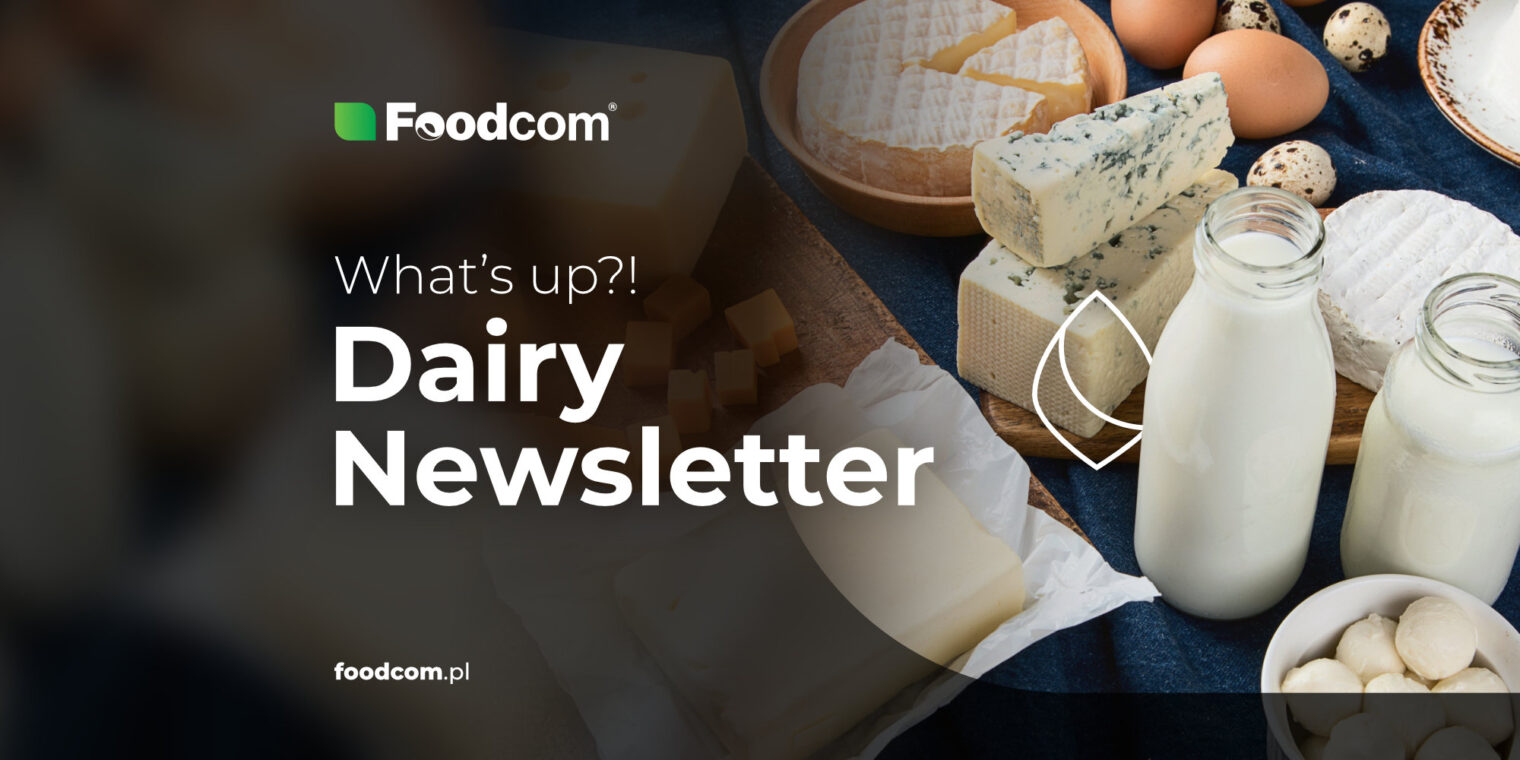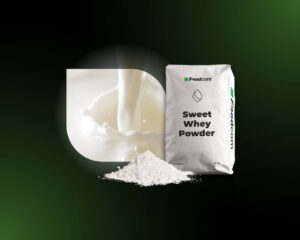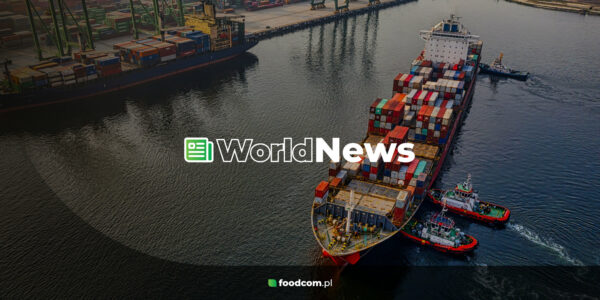- The market for Skimmed Milk Powder (SMP) is in difficulty due to weak demand and increased supply from old stocks, which is having an impact on prices.
- Despite high production, cheese prices remain stable, but falling cagliat prices across Europe could indicate future price pressure.
- Interest in investing in the Polish dairy sector is increasing despite financial difficulties, indicating the industry’s resilience in the face of economic challenges.
Hello Partners!
Welcome back to our Newsletter!
This newsletter looks at trends in the dairy market and highlights price fluctuations in products such as SMP, cheese, butter and whey powder amid market challenges. It also describes the investment efforts of the Polish dairy sector despite the financial downturn and the competitive situation. In addition, Brazil’s strategy to expand live cattle exports to Oman is mentioned, highlighting the country’s agricultural export ambitions amid global concerns over the welfare of the animals being transported.
Let’s take a look at what else is happening in the dairy market!
Skimmed Milk Powder
The price of Skimmed Milk Powder, which is used for animal feed and supplied in large quantities to the Netherlands, is currently 2150-2200 EUR/MT per ton for immediate delivery. The contracts for the coming quarter have already been signed and the expected prices are between 2200-2400 EUR/MT.
However, the market for food-grade SMP is facing challenges. According to the latest results of the Global Dairy Trade (GDT), it is more difficult to conclude new contracts. In addition, more SMP is being offered from old stocks, which indicates weak demand. We currently have prices in the range of 2350-2450 EUR/MT FCA.
Cheese
Cheese prices are relatively stable, even if some transactions are made at the lower end of the price range. The market is characterized by high cheese production and a large supply of whey concentrate, which could soon lead to price pressure. We are also seeing falling prices for Cagliata across Europe.
Fats
Butter prices have fallen and are currently between 5650 and 5700 EUR/MT. Buyer interest in the market is evident and some deals have been concluded around 5800 EUR/MT. This indicates a temporary oversupply and is prompting sellers to adjust prices downwards to attract buyers.
AMF prices were stable last week.
Liquids
The price of 40% Cream fluctuates considerably, which may reflect fluctuations in the supply of raw materials or changes in consumer demand. High prices indicate a possible shortage in the cream market, which could affect the production costs of companies using this ingredient.
Skimmed Milk Concentrate prices are experiencing a downturn, currently priced between 1800 to 1850 EUR/MT FCA in Germany. While there are attempts to push prices below 1800 EUR, these efforts have not yet been successful, indicating some resistance within the market against further declines.
Milk intake and payouts to farmers are on the rise, while spot prices are declining. Despite a generally optimistic outlook, there’s a cautious sentiment prevailing in the market, likely influenced by the recent dip prices and uncertainties surrounding Chinese demand.
Whey powders
The market for Sweet Whey Powder (SWP) meant for animal feed and bulk shipments to the Netherlands is currently experiencing a downturn, with prices dropping below 700 EUR/MT. This indicates that sellers may be under pressure due to either an oversupply or weakening demand.
The current price range for Sweet Whey Concentrate is 350 to 450 EUR/MT FCA, with a set rate of 300 EUR/MT for immediate sales. This pricing suggests a generally stable market, although sellers seeking fast deals may need to settle for lower prices.
What else?
Despite the declining financial results of the Polish dairy sector in the first three quarters of 2023, with net sales of PLN 38.3 billion (a decrease of 10.1% compared to the previous year) and net profit of PLN 139.8 million, Polish dairies continue to invest and spend PLN 563.9 million. The fall in raw milk prices has helped to improve profitability, despite increased operating costs, including energy and external services. Agnieszka Maliszewska, Director of the Polish Dairy Chamber, expressed concern about the future of the sector due to rising production costs and the decreasing competitiveness of Polish dairy products on foreign markets.
Brazil is expanding its exports of live cattle and opening up the Omani market as part of its strategy to increase exports of agricultural products. Recently, an agreement between Brazil and Oman has allowed the import of live cattle into Oman, highlighting the success of Brazil’s efforts to expand trade. In 2023, Brazil exported live cattle worth 454 million euros to 23 countries. Meanwhile, criticism of live animal transportation is increasing worldwide. In Brazil, however, this issue remains relatively unnoticed despite international controversy over animal welfare on transport ships.









